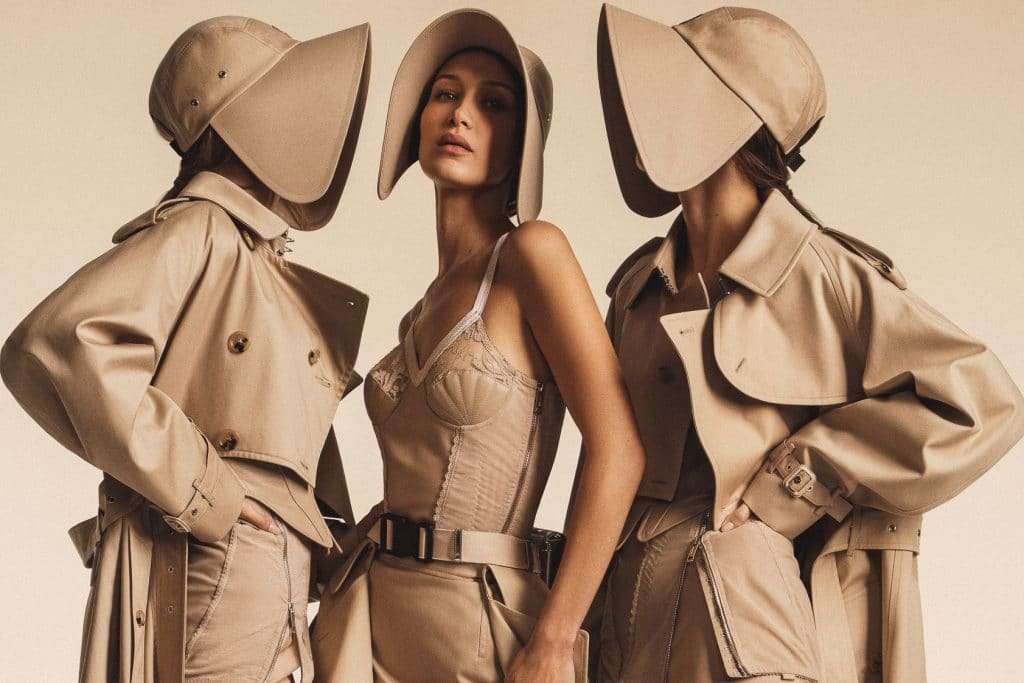Burberry is leaning into its roots as a legacy luxury British label, and charting a new course forward as a leader in responsible fashion.
In January, Burberry announced it would be climate positive by 2040 after inking a $410 million ESG loan. It’s been steadily working toward that goal. The brand has been a leading force in sustainable fashion; the Dow Jones Sustainability Index has repeatedly ranked Burberry as a top performer in the category. Now, with a new CEO at the helm, the brand is reinforcing itself as the leader in British style and a leader in sustainability with a shift away from exotic skins.
“We are a 166-year-old brand so I think it’s for sure something we will continue to build on. It’s a great position to have,” CEO Jonathan Akeroyd, who took the reins from Marco Gobbetti earlier this year, told Vogue Business.
“Burberry is a unique British company with an extraordinary history and heritage and it is a privilege to take the reins in this next phase,” he said.
That heritage is expected to translate into more “Made In Britain” items including the brand’s signature trench coats that are handcrafted in Leeds.
Responsible design
It also means continuing its shift to responsible materials; the company announced a ban on exotic animal skins earlier today. Last November, as part of the COP26 climate summit, Burberry announced a three-pronged biodiversity strategy aimed at reevaluating its animal-based textiles.
The label banned fur and angora in 2018. It’s been under increasing pressure from animal rights groups including PETA (People for the Ethical Treatment of Animals) to drop products made with python and alligator skins.

“During Burberry’s annual meeting last year, PETA UK asked when it would make good on its commitment to be ‘a force for good in the world’ by banning exotic skins, and we’re delighted that after years of pressure from PETA entities around the world, that day is today,” PETA UK Vice President Mimi Bekhechi said in a statement.
The ban announcement comes on the heels of Kering’s announcement that it is working to develop cell-based leather with Vitrolabs. The tech company received backing from the Gucci parent company as well as actor Leonardo DiCaprio.
LVMH also recently announced its plans to develop lab-grown fur; it’s one of the last remaining luxury brands to use fur.
Sustainability at Burberry
Burberry says it’s also continuing its efforts to take industry-leading steps to advance its decarbonization agenda “and are proud to have substantially met all targets we set as part of our 2017-2022 responsibility strategy,” the company said in a statement. “We are now carbon neutral across our own operations globally; all the electricity we use is from renewable sources; and almost all our products have a positive attribute, meaning they carry a social or environmental benefit.”
This underpins the brand’s climate-positive target for 2040. “At the same time, we set a new biodiversity strategy, focused on protecting and restoring nature, expanding support for farming communities and developing regenerative supply chains,” the company said.
It also recently announced its entry into the booming resale market, with the launch of a partnership with British resale platform, My Wardrobe HQ.
It’s also doubling down on its community support efforts and its goal of positively impacting one million people by the end of the year.

“We partnered once more with Marcus Rashford MBE and charities across the UK, US and Asia to provide literacy skills and safe creative spaces for underrepresented youth. We extended our support for more equitable vaccine distribution to tackle the global pandemic, with further donations to the UNICEF COVID-19 Vaccine Appeal through The Burberry Foundation,” Burberry said.
“With millions of lives impacted by the humanitarian crisis in Ukraine, we also donated to the British Red Cross Ukraine Crisis Appeal, Save the Children and UNICEF to help provide essential services to displaced families, and we are donating more than 20,000 blankets to Ukrainian refugees that we manufactured in Castleford and with our supply partners in Italy.”
For Akeroyd, it’s full steam ahead. Burberry also announced today that despite a “continuing challenging external environment”, FY22 revenue increased 10 percent.
“As CEO I fully intend to build on these strong foundations as we focus on accelerating growth,” he said. “The ambition to become true luxury remains and it will create the most desired value for the brand and ultimately the most sustainable profitable business.”


